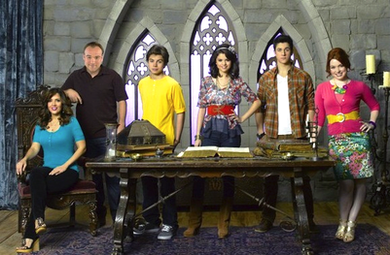There comes a time when it’s too late to tell people how you feel.
There will come a day when the person you mean to talk to won’t be there. Don’t wait for that day.
“There’s always tomorrow” isn’t always true.
The no-pants guide to spending, saving, and thriving in the real world.
I once worked for a company that was so confused that, not only did I not meet my last immediate supervisor for 6 months, but he didn’t know what I did or who I supported. He was my supervisor on paper for payroll and organizational purposes only.

Does your boss know what you do?
More recently, I was called into my current boss’s office to get scolded for low productivity since I don’t produce as much as the other programmers.
That’s not my favorite thing to do in the afternoon. I’d rather spend the afternoon playing Angry Birds improving our software.
In response, I spent the week logging my time. Before I left on Friday, I sent my boss an email that started out with:
When we spoke on Monday, you compared my productivity unfavorably to the other developers. I don’t think that’s a fair comparison as I do more categories of tasks than the others. I don’t think you realize how many additional responsibilities I’ve taken on over the years.
I continued from there with a summary of each day’s work last week. The short version is that, while being productive, I spend less than half of my time on my primary job function because I’ve slowly taken on a managerial role.
I’m on vacation this week, so it will be a few days before I find out if my email will make a difference.
Now, this scolding was my fault. I know I spend my day doing much more than just writing code. I’ve told my boss that before, but I’ve never made sure he understands the scale of the extra work, and I’ve never proven it with a detailed log.
This was poor personal marketing.
In the future, I have to make sure that I keep him in the loop with a summary of the extra work I do, like the training, product demos, sales calls, and estimates I’m involved in.
We’ll see how well that works.
How would you handle a situation like this? Daily emails? Whining? Kicking a garbage can across the room?
Selena Gomez is no longer the innocent yet rebellious Alex from Disney’s hit show Wizards of Waverly Place. In fact, the quirky and wholesome child star who was beloved by so many young women has now become a scantily

clad pop star that is singing risque lyrics to her on again off again pop star boyfriend Justin Beiber. Her transition to adult stardom has not been an easy one, and many believe that her role in “Spring Breakers” is a sign that she has officially entered adulthood and kissed her teen-friendly role preference in the past. But unlike other famous Disney child stars like Lindsey Lohan and Britney Spears, Gomez has had a relatively smooth path to adult stardom with only minor bumps in the road. But many people are asking themselves whether or not child stars can actually make it as adults, or whether their career is over once their cute phase stages.
Child stars are aware of the fact that they are always being watched. They become the idols of their young fans, and these young idols rely a lot on their cuteness to become a celebrity. But transitioning from a cute kid to a talented adult actor can be a difficult feat. Not only does the star have to earn a new fan base, they also must find a new identity and decide which types of roles they are willing to take now that they are a mature adult able to make their own decisions. Sometimes, even children who do not fall into the drug and alcohol trap, find it difficult when they are given control of their own careers without their guardian’s rules.
The Public is Less Receptive to a Child Star Turned Adult Star
Die hard Wizards of Waverly Place will always see Selena Gomez as the lovable yet comedic Alex Russo. While this was her most popular role, it is the role that will makes her transition into more mature roles difficult. The public is less receptive to an adult Selena Gomez, clad in bra tops and short shorts, because they do not realize that she has matured. When the public shuns a child star for taking on more adult roles, the star simply is not sought after for movies and sitcoms. Young female child stars tend to be judged much more than their male counterparts. In fact, Justin Timberlake and Ryan Gosling are both very successful in the acting scene, and they were both Mouseketeers.
It is possible for a child star to make it as a adult, but the person must have thick skin and be prepared for a publicly criticized transition. Many child stars simply choose to retire once they have outgrown the ability to take on youthful roles, and others are not mentally prepared for the scrutiny they will face. Ultimately, a child star can have a successful career in stardom as an adult if the public is ready for the transition.
On October 27th, 2013, Lou Reed passed away in his Long Island home at the age of 71. A rock and roll pioneer who shaped the American pop culture landscape, Reed was known for his work with both The Velvet

Underground and his solo work. His biggest hit as a solo artist was 1972’s “Walk on the Wild Side,” hailed as a classic by critics and industry veterans.
Reed’s achievements as an artist had less to do with financial or commercial triumphs and far more to do with daring and trailblazing artistry. His most recent work was New Age ambient music, a grand departure from his earlier rock sound. His New Age meditation album, “Hudson River Wind Meditations,” was overlooked by critics but popular with fans of the genre. His final album was 2011’s “Lulu,” a progressive collaborative effort with Metallica. The album was comprised mostly of spoken word.
Reed could have continued to find commercial success and grow his brand and wallet had he continued to create the rock and roll sound that many of his fans desired. However, Reed was nothing if not a rebel, unwilling to bend to the requests of even his most die-hard fans. Ultimately, his passion was to create the sound that he wanted to create – not the sound that others wished he would create.
The lesson that we can all take from the life of Lou Reed is a simple one: While making decisions based on financial and professional factors is undoubtedly important, there is certainly something to be said for throwing caution to the wind and finding one’s bliss. While we all might not be able to eschew doing what we need to do in favor of what we want to do, we could all stand to take some time to do what makes us truly happy and find our bliss. Reed is nothing if not an inspiration for chasing your passion no matter what your critics say.